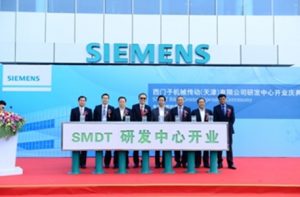The Securities Exchange Commission (SEC) has launched an investigation into some of the largest multinational medical equipment manufacturers for allegedly using local intermediaries to arrange bribes with Chinese government and hospital officials to sell equipment within the country. People familiar with the matter spoke on the condition of anonymity, as they were not authorized to discuss the circumstances.
According to Reuters, the companies named in the SEC inquiry include Siemens AG, Philips NV, and General Electric Co. This investigation represents a larger effort by the federal regulator to fight fraud in the equipment procurement process happening around the world. In addition, a similar investigation was launched by the FBI against Siemens, GE, Philips and Johnson & Johnson for providing incentives to win contracts in Brazil.
The companies allegedly under SEC review have all denied wrongdoing and have made similar claims of not having knowledge of an investigation regarding their Asian practices. According to the Foreign Corrupt Practices Act of 1977 (FCPA), it is against the law for publicly traded companies to pay bribes to foreign officials to assist in acquiring or retaining business. These regulations can be applied to operations conducted anywhere in the world and sanctions can be onerous to all involved.
Despite their protests of innocence, some details surrounding certain practices in China were alluded to in a GE shareholder lawsuit launched against current and former members of General Electric’s board. Filed in a New York state court, the claim states that GE officials in China or employees at their subsidiaries “have bribed hospital administrators, engaged in collusive biddings, and given kickbacks to government officials.”
The claim includes translated documents of Chinese court rulings finding middlemen who sold GE equipment guilty of illegally inducing government and hospital officials. Amongst the assertions made, the intermediaries charged were accused of routinely fixing prices at 40 percent of what these individuals paid and rigging tenders for expensive medical equipment. The additional funds were then said to be dispersed as bribes to healthcare representatives, the middlemen themselves and to other companies that submitted ‘cover’ bids to ensure the public tender appeared competitive.
China has one of the strongest emergent economies in the world and represents a growing medical device market that was worth $58.63 billion in 2017. As most of the Asian country’s domestically-made medical equipment is either low-tech or mid-range, their hospitals and healthcare providers have a strong preference for imported devices. Also, China’s aging population is driving the demand for high-quality technology that improves quality of care to these individuals.
Companies eager to get in on this Asian market must navigate certain challenges – such as an evolving regulatory system that tends to move more quickly than foreign manufacturers. In 2015, the Chinese government launched their “Made in China 2025” initiative to update their manufacturing base and reduce the country’s dependence on makers of foreign goods. As healthcare technology is included as one of the ten high-tech industries identified in their strategy, medical equipment producers may need to set up a representative office and trading company. To take full advantage of this profitable market, some equipment makers may have looked at less conventional methods to gain that edge.























